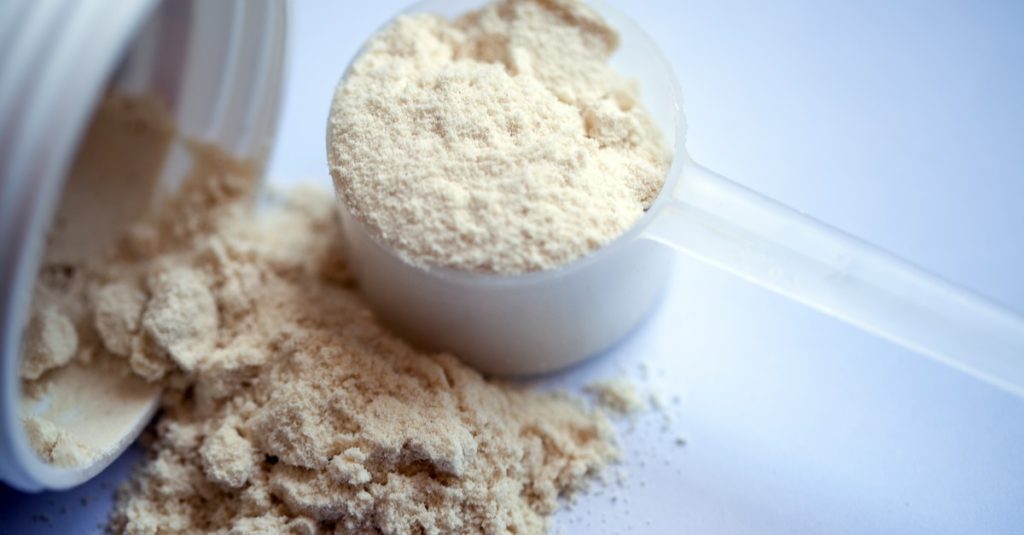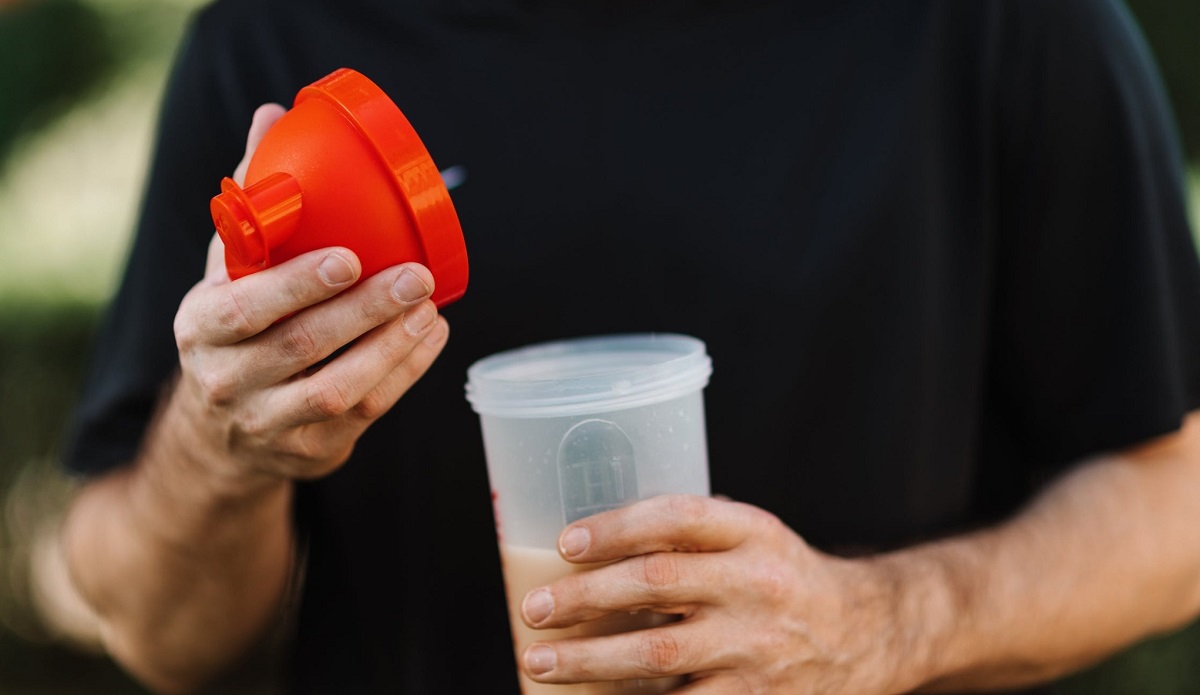Last Updated on October 21, 2022 by admin
Looking to buy some powder for a protein shake? You may have come across a good deal with protein powders being sold at a discount and want to buy in bulk to save up and ensure you have a constant supply. Or, you may stumble across a tub of protein powder that has been sitting on your topmost shelf for a while now.
Such situations may make you wonder whether protein powder goes bad or expires, or whether it is bad to consume expired protein powder. Whether you’re using whey protein powder or vegan protein powder, it’s important to know what to look for when old protein powder hits its expiration.
In this article, we’re going to discuss the shelf life of your favorite protein supplement powders, so you can ensure you’re upping your protein intake safely.
What is the Shelf Life of Protein Powder?
Like most other edible products, protein powder does expire. While the FDA does not require supplement companies to indicate the manufacturing and expiry date for food safety, most products have it on the protein powder container. It is usually indicated as “use by”, “sell-by”, ” best before”, or “best by” followed by a given date.
The “use by”, ” best before”, or “best by”, is an indication for customers on the date by which the product should be consumed. In the time before the indicated date, the product has the highest potency and is safe to consume. The “sell-by” date is an indication for sellers to ensure that the product is sold or removed from the shelf by the given date.
Research shows that most protein powders have a shelf life of 9-19 months when stored unopened and in normal conditions. If a protein powder contains preservatives, it can last up to two years.
When compared to whey protein, plant-based protein powder has a longer shelf life of about 2 years. Both plant-based protein powder and whey protein powders have a low moisture content that minimizes the risk of bacterial growth. However, whey protein powders are made from milk, which is more prone to getting spoilt than plant protein.
Is It Bad to Consume Expired Protein Powder?
In most instances, it is safe to consume a protein powder shortly after it has expired as long as it does not exhibit obvious signs of going bad. However, there is no clear indication for how long after the expiration date that the protein powder is still safe.
Several studies have indicated that the quality of the protein powder diminishes as it ages. For instance, the essential amino acid lysine starts to break down through the process of Maillard reaction after some time. As such, the powder becomes less effective in promoting muscle growth and recovery.
Opened protein powder has a shorter shelf life than an unopened one. Most manufacturers seal their protein powder tubs or packages tightly to ensure that no air or contaminants get in. However, once you open the tub, contaminants, dirt, dust, and moisture can easily get into the dry powder.
How Long Does Mixed Protein Powder Last?
Most people mix their protein powders with water, in a smoothie, or other beverage for easy protein content consumption. Some people like to mix one portion at a time and take it immediately. Others like to mix several portions and put them in the fridge for consumption over the next few days.
A mixed shake can last in the fridge for a few days, although its taste and color may change. However, if you leave it in the open air, in a warm environment, it is likely to go bad within a few hours. Also, note that mixing your protein powder with other ingredients shortens its shelf life. It is best to make a fresh protein powder shake each time and consume it within an hour or two.
What are the Signs that Your Protein Powder Has Gone Bad?
There are some obvious tell-tale signs that your protein powder has gone bad. These include:
- Powder has clumps
- Change in color
- Bitter taste
- Foul smell
- Emulsifying and foaming properties decrease in solubility
What Happens if You Take Protein Powder That Has Gone Bad or Expired?
Some people choose to overlook the expiration date or obvious signs that the protein powder has gone bad and proceed to consume it. While you could get away with it, there can be adverse reactions including:
Gastrointestinal Issues: You may experience gas, bloating, abdominal pain, or indigestion particularly if the protein powder had bacterial or fungal growth. The bacterial and fungal growth disrupts your gut biome and normal functioning, causing the aforementioned symptoms.
Loss of Muscle Mass: If your main reason for taking protein powders is to promote muscle growth, consuming expired protein can result in loss of muscle mass. This is because the quality of the amino acid may have been compromised, losing its efficiency. It may also derail recovery post-workout.
How to Store Protein Powder to Optimize Shelf Life
To enhance the shelf life of your protein powder, store it in a cool, dry place away from direct sunlight. You should store it in an airtight container. Do not store protein powder in a refrigerator or freezer.

Most protein powders come packaged in big plastic tubs, which are easy to open and close. In this case, it is ok to keep your powder in the tub even after opening it as long as you seal the container tightly. If left open, the protein powder can absorb moisture and get clumpy with an altered taste.
Other powders come in a resealable pouch that is made of nylon layer and foil. These are perfect for storing your protein powder even for a long time as they keep off moisture and other contaminants, and provide a UV barrier.
If the powder comes in a package that cannot re-seal, transfer it to an airtight container once you open it. You could use a mason jar or reuse a protein powder tub from your previous batch. Ensure to clean the container, rinse it, and dry it completely before using.
Close the tub immediately after you have scooped out the powder for the mix. Do not leave it open for too long as it increases the chances of contamination.
If for one reason or another you need to store a mixed protein powder, put it in an airtight container, seal it tightly, then store it in the refrigerator. Ensure to stir or shake it well before consuming it to redistribute the protein powder.
In Conclusion
It can be tempting to take up discount deals on protein powders and buy as much as you can afford or have space to store. However, keep in mind that protein powders have a definite shelf life and can go bad.
Check the expiration date indicated on the packaging to establish how much time the protein powder has before it expires. Ensure to store it properly to prevent contamination and to prolong its shelf life.

